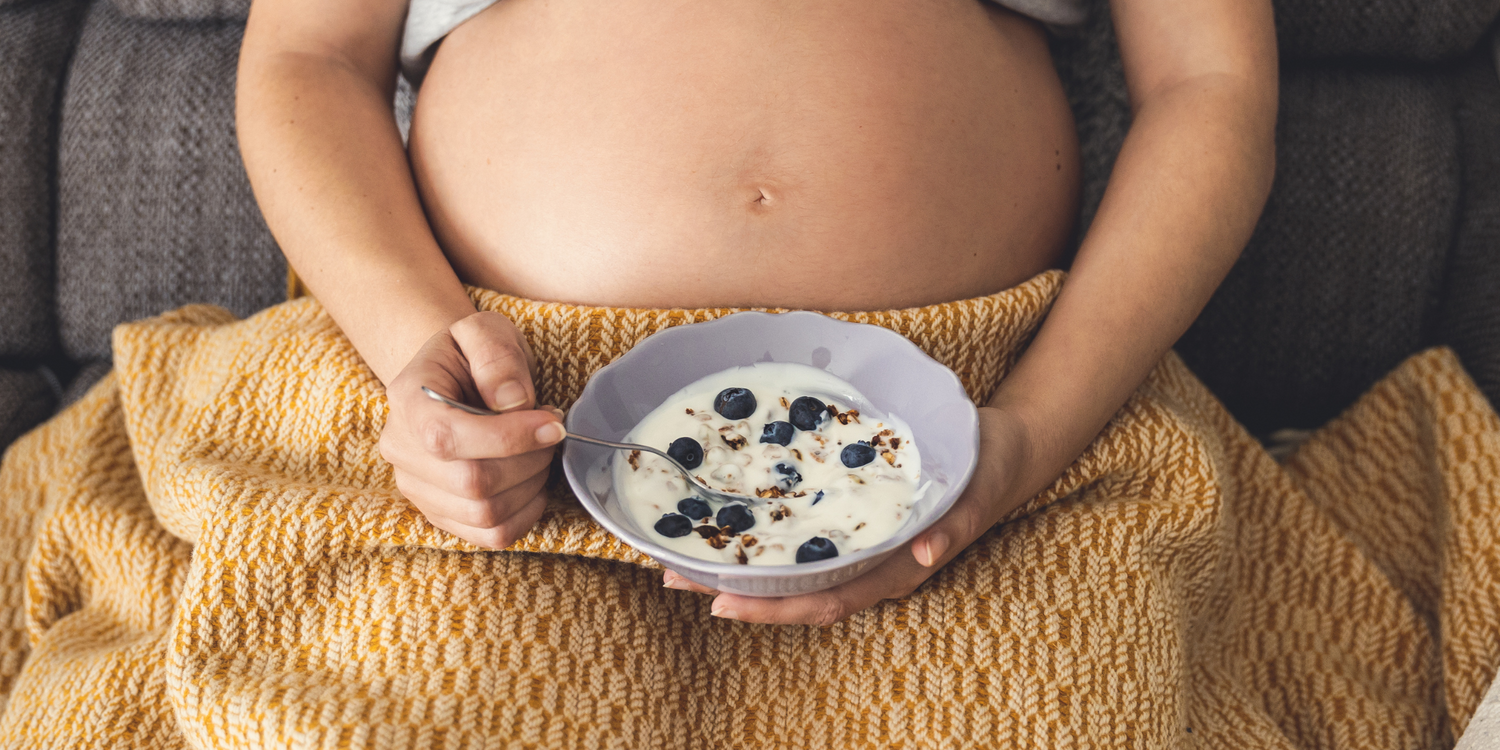Key Takeaways
- Are you wondering which nutrients are particularly important for the healthy development of your baby during pregnancy?
- This article shows you how you can get the most out of folic acid, iron, calcium and DHA through a balanced diet or targeted supplementation.
- Find out which foods are the best sources and how you can support your baby's development in the best possible way with the right combination of different vitamins and minerals.how to ensure your nutrient supply during pregnancy.
Are you wondering which essential nutrients your baby needs for healthy development during pregnancy. A balanced diet is now crucial for both you and your unborn child. The increased demand for specific nutrients during pregnancy requires special attention to your daily nutrition.
Folic acid, iron, and vitamin D are among the most important nutrients you need. This article explains which foods contain these valuable nutrients and how to incorporate them into your diet effectively. You’ll also learn when additional supplementation is beneficial and how to best combine various vitamins and minerals.
Folic Acid - The Most Important Nutrient for Pregnancy
Folic acid, part of the B vitamin family, plays a central role in your baby’s healthy development. The need for this crucial nutrient increases by nearly 83% during pregnancy.
Why Folic Acid is So Important
Folic acid is essential for cell division and growth processes. It’s vital for the development of the neural tube, which forms your baby’s brain and spinal cord—a critical phase that occurs just three to four weeks after conception, often before you even know you’re pregnant.
A folic acid deficiency can have serious consequences. Approximately 95% of women of childbearing age in Germany have low folic acid levels, increasing the risk of birth defects, such as neural tube defects.
Natural Sources of Folic Acid
Foods particularly high in natural folate include:
- Green leafy vegetables (spinach, lamb's lettuce)
- Legumes and whole grains
- Tomatoes and citrus fruits
- Eggs and certain cheeses
- Potatoes and nuts
Recommended Folic Acid Supplementation
The German Nutrition Society recommends a daily intake of 550 micrograms of folate for pregnant women. Since it can be challenging to meet this need through diet alone, additional supplementation is important:
- If planning pregnancy: 400 µg of folic acid daily, starting at least four weeks before conception
- During pregnancy: 800 µg of folic acid daily until the end of the first trimester
Iron and Calcium for Healthy Development
Your need for essential minerals increases significantly during pregnancy, with iron and calcium playing a central role in your health and your baby’s development.
Iron Requirement During Pregnancy
Your iron requirement doubles during pregnancy to around 30 mg per day. This is particularly important since almost half of pregnant women in Europe develop iron deficiency. Untreated iron deficiency can lead to fatigue, pale skin, and an increased risk of infection.
Calcium-Rich Foods
The daily calcium requirement is between 1,000–1,200 mg. Some good calcium sources include:
- A glass of milk (200ml) - 245 mg calcium
- A slice of Emmental cheese (30g) - 310 mg
- Parmesan cheese (100g) - 1,400 mg
Tips for Better Absorption
For optimal nutrient absorption, follow these recommendations:
- Combine iron-rich foods with vitamin C to improve absorption
- Avoid taking iron and calcium at the same time
- Calcium from dairy products is absorbed better than from plant sources
Omega-3 Fatty Acids and Iodine for Brain and Thyroid Health
The brain development of your baby begins early in pregnancy, and two nutrients are especially important here: Omega-3 fatty acids and iodine.
Importance of DHA for Brain Development
DHA (docosahexaenoic acid), a specific Omega-3 fatty acid, is vital for your baby’s brain development. The recommended daily DHA intake for pregnant women is 250–400 mg.
Iodine-Rich Foods
Iodine is essential for the production of thyroid hormones, which in turn regulate your baby’s brain development. The recommended daily iodine intake during pregnancy is 230 µg. Major sources include:
- Saltwater fish (particularly cod and pollock)
- Dairy products
- Iodized table salt
- Eggs
If you rarely or never eat fish, DHA supplementation of 200 mg daily is recommended. Additionally, a daily intake of 100–150 µg of iodine may be advised, but always consult your doctor.
Combining Vitamins and Minerals Effectively
A healthy nutrient supply during pregnancy relies on the right balance of vitamins and minerals.
Balanced Diet as a Foundation
Your nutrient needs increase significantly more than your energy needs during pregnancy, so you don’t need to “eat for two.” Instead, prioritize quality over quantity by including nutrient-rich foods in your diet. Your daily diet should include:
- Vegetables & fruits: Daily, various types
- Whole grains: With every main meal
- Dairy products: 2–3 servings per day
- Fatty sea fish: 1–2 times per week
Useful Supplements
Not all nutrients can be sufficiently obtained from food alone. The following supplements are particularly recommended:
- Folic acid and iodine: Both are generally recommended by doctors
- DHA: Recommended at 200 mg daily for those who eat little or no fish
- Iron: Only if diagnosed with a deficiency
Regular blood tests, especially for iron, vitamin B12, and vitamin D, are also helpful. Those following a vegan diet should ensure they get adequate vitamin B12, and when taking iron and magnesium supplements, allow at least two hours between doses. Avoid nutrient overdoses, as excess amounts of certain nutrients can harm your baby; for example, folic acid intake should not exceed 1,000 µg per day.
Conclusion
A balanced diet during pregnancy is essential for your baby’s healthy development. Key nutrients like folic acid, iron, calcium, DHA, and iodine play different roles—from brain development to building the nervous system. Instead of “eating for two,” choose nutrient-rich foods carefully.
Your daily diet should be a mix of nutrient-dense foods like whole grains, vegetables, fruits, and quality proteins. Talk to your doctor about necessary supplements, especially folic acid and iodine. Regular blood tests help detect any potential nutrient deficiencies early so you can address them promptly. With the right combination of balanced nutrition and targeted supplementation, you’re creating the best conditions for you and your baby.
References & Literature
- Cox, JT, & Phelan, ST (2008). Nutrition during pregnancy. Obstetrics and gynecology clinics of North America, 35(3), 369-383
- Glinoer, D. (2007). The importance of iodine nutrition during pregnancy. Public health nutrition, 10(12A), 1542-1546.
- Hacker, AN, Fung, EB, & King, JC (2012). Role of calcium during pregnancy: maternal and fetal needs. Nutrition reviews, 70(7), 397-409.
- Rifas‐Shiman, SL, Rich‐Edwards, JW, Willett, WC, Kleinman, KP, Oken, E., & Gillman, MW (2006). Changes in dietary intake from the first to the second trimester of pregnancy. Pediatric and perinatal epidemiology, 20(1), 35-42.
- Williamson, C.S. (2006). Nutrition in pregnancy. Nutrition bulletin, 31(1), 28-59.

